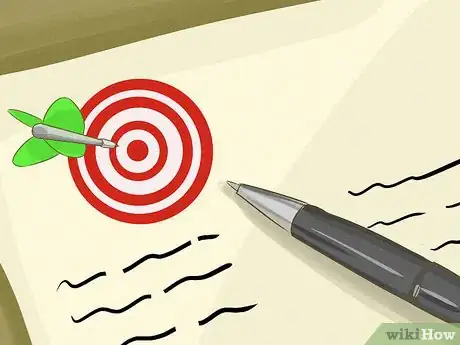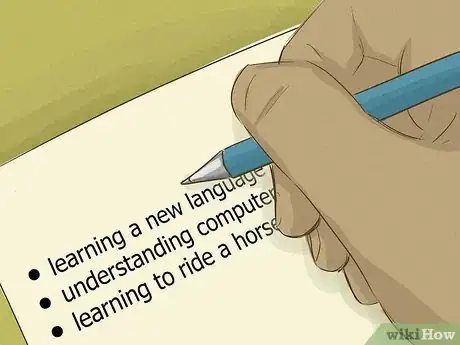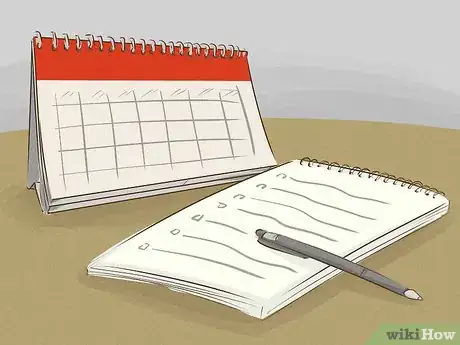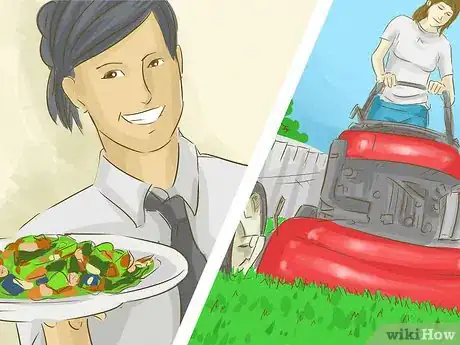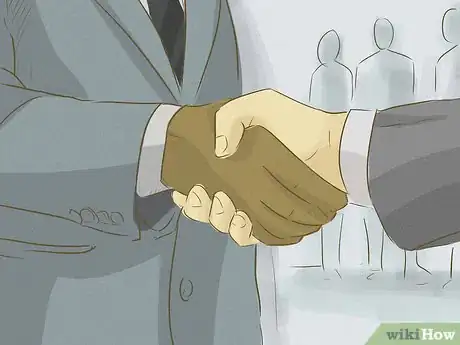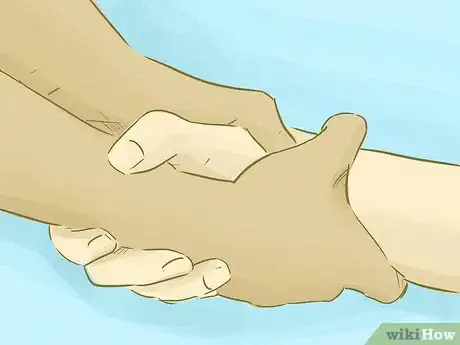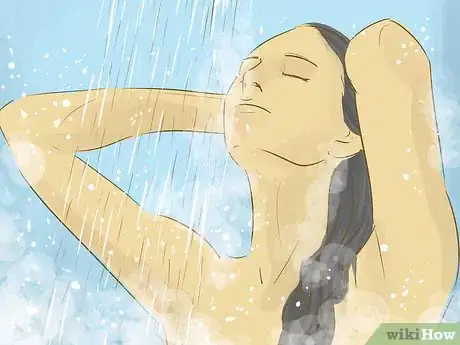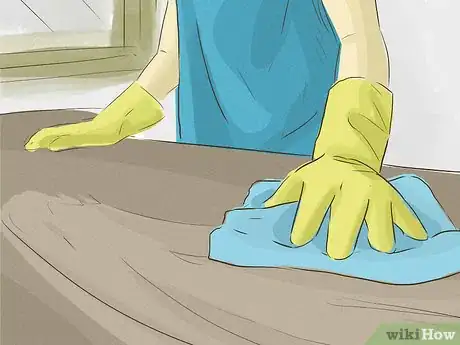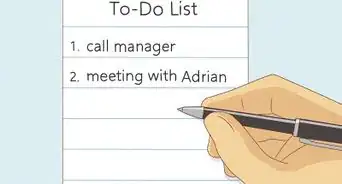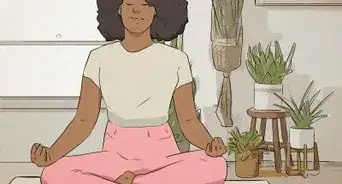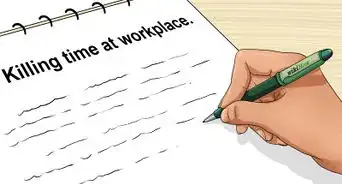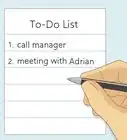This article was co-authored by Amber Rosenberg, PCC. Amber Rosenberg is a Professional Life Coach, Career Coach, and Executive Coach based in the San Francisco Bay Area. As the owner of Pacific Life Coach, she has 20+ years of coaching experience and a background in corporations, tech companies, and nonprofits. Amber trained with the Coaches Training Institute and is a member of the International Coaching Federation (ICF).
There are 7 references cited in this article, which can be found at the bottom of the page.
wikiHow marks an article as reader-approved once it receives enough positive feedback. In this case, 88% of readers who voted found the article helpful, earning it our reader-approved status.
This article has been viewed 198,770 times.
Some people hear the phrase ‘leisure time’ and see it as an automatic free pass to lounge around and do nothing. While that’s perfectly fine on occasion, leisure time can offer a great opportunity to catch up on unfinished tasks or advance yourself personally or professionally. In this article, we'll show you a variety of useful and productive ways you can spend your free time.
Steps
Engaging in Personal Development
-
1Review your goals and set new ones. Use your leisure time as a period of reflection. Look back on the goals you have set, decide if you are advancing as you’d like, and determine if you need to revise or develop new goals.[1]
- For instance, if you set a goal last month to “Save $250,” you might check your savings to see how well you are advancing towards this goal. If you are progressing as expected, move on to the next goal. However, if you have fallen behind, you may choose to lower the goal (to say, “$150”) or figure out a strategy to help you stay on track like getting a side job.
-
2Identify some things you’d like to learn. Free time outside of work, school, or family responsibilities can be spent productively when you use those chunks of time to learn new things. New skills can help you get ahead at work, or simply challenge you creatively.
- Make a list of a few new skills you’d like to obtain. These may include tasks like learning a new language, enhancing your understanding of computers, or learning to ride a horse.
- For a balanced life, choose some skills that relate to your personal or professional development, and some hobbies that you want to pick up purely out of curiosity.
Advertisement -
3Streamline your to-do list. Your to-do list may be bogged down with extremely overwhelming tasks that you keep pushing to the next day or next week. Such tasks cause frustration and rarely get done until the last minute. Ensure that you actually complete the outstanding tasks on your to-do list by de-cluttering it.[2]
- Write down your most important to-dos for the following week on a sheet of paper. Then, decide if this task requires one or several steps. Rather than writing “complete History essay,” individual action steps like “find resources for history paper,” “create outline,” and “write first draft.”
- One-step to-do lists are much more likely to have check marks at the end of the day.
-
4Make some extra money. If you’re in need of extra cash, you can spend your leisure time from work or school doing a side job or finding creative ways to make money. Get a second job that you can do on evenings or weekends. Monetize your passion for jewelry making by setting up an Etsy shop. Sell those old books or clothes in your attic.[3]
Connecting Socially
-
1Expand your professional network. Beyond the hours of 9 to 5, there are a range of networking events you can attend. Saturday brunch or evening cocktail parties may serve as the perfect backdrop to pitch a new idea or pass out your business cards.[4]
- Look up networking events in your area or put out feelers at work or in your professional organization to learn about after-hours events.
-
2Invite some friends or family over. Having a strong social support group makes you more resilient to stress and even builds self-esteem. If you tend to flake on your loved ones due to school or work commitments, use your leisure time to hang out and nurture your existing friendships.[5]
- Plan a movie night, game night, or ice cream social. Call up a few friends or family members you never get to see and invite them to join in on the fun. Connecting with those you love is a wonderful way to spend your downtime.
-
3Start a volunteer commitment. Helping out in your local community provides you with an opportunity to connect with others, do something meaningful, and even polish your resume. Think about an area of need in your community and find out how you can be of service.[6]
- You might help plan a community event, work in a homeless shelter, or pick up trash after the annual carnival.
-
4Do random acts of kindness. If you are searching for interesting ways to fill your free time, do something kind for someone else. Random acts of kindness show those around you that you care, and they make you feel good about yourself, too.
- These acts can be anything, from dropping off fresh-baked muffins to your elderly neighbor or volunteering to watch your sibling’s kids so they can go on a date. Make a list of fun ways you can give back to those around you, and aim to complete one random act each day.[7]
Focusing on Health
-
1Find some healthy recipes you’d like to try. If you have a bit of downtime, meal prepping is a great way to use it. When you plan and prepare your meals ahead of time, you are less likely to choose unhealthy options like fast or junk food. Browse interesting recipes on Pinterest and compile a grocery list to take with you shopping.
- Ask your roommate, partner, or children to help you. This will help you get the task done faster. Plus, you’ll have more fun as you work together.
-
2Exercise. Regular physical activity delivers an energy boost and keeps your mind alert. You already know you should exercise a few days a week. But if you plop down on the couch to watch TV first, you’re unlikely to get moving later. Make exercise a priority by using your leisure time to support your physical and mental well-being.[8]
- Allot at least 30 minutes to running, walking, biking or some other preferred activity. You can even turn on some music and shake your hips as you cook or clean your home.
-
3Stock your self-care toolbox. Even if you are not currently stressed, you can positively influence your well-being by practicing self-care. Too often, you may relegate yourself to the bottom of your priority list. Creating a self-care toolbox helps you gather relaxing activities so they are at reach when you need a refresh.[9]
- Stock your self-care toolbox with items and activities that rejuvenate your mind and body. You might include scented candles and lotions, bubble bath or salts, a coloring book, a novel, a knitting project, or your favorite movie.
-
4Tidy your home. You might wonder what cleaning has to do with health. A clean home can offer you mental health benefits because you aren’t stressed about where things are. However, if you suffer from allergies or other chronic conditions, cleaning your home regularly can reduce unpleasant symptoms. Also, cleaning offers you the chance to move your body and get your heart rate up.
- Use natural cleaning products to reduce your exposure to toxins to further benefit your overall health and well-being.
Expert Q&A
-
QuestionDo I need to relax in my leisure time?
 Amber Rosenberg, PCCAmber Rosenberg is a Professional Life Coach, Career Coach, and Executive Coach based in the San Francisco Bay Area. As the owner of Pacific Life Coach, she has 20+ years of coaching experience and a background in corporations, tech companies, and nonprofits. Amber trained with the Coaches Training Institute and is a member of the International Coaching Federation (ICF).
Amber Rosenberg, PCCAmber Rosenberg is a Professional Life Coach, Career Coach, and Executive Coach based in the San Francisco Bay Area. As the owner of Pacific Life Coach, she has 20+ years of coaching experience and a background in corporations, tech companies, and nonprofits. Amber trained with the Coaches Training Institute and is a member of the International Coaching Federation (ICF).
Pacific Life Coach Self-care is extremely important and everyone needs time to recharge their batteries and get some rest. You don't have to relax in your leisure time and there's nothing wrong with being productive, but you shouldn't grind yourself into the ground trying to cram every single minute with productivity. It's important to take occasional breaks and do things you enjoy.
Self-care is extremely important and everyone needs time to recharge their batteries and get some rest. You don't have to relax in your leisure time and there's nothing wrong with being productive, but you shouldn't grind yourself into the ground trying to cram every single minute with productivity. It's important to take occasional breaks and do things you enjoy.
References
- ↑ http://www.lifehack.org/articles/featured/20-productive-ways-to-use-your-free-time.html
- ↑ Amber Rosenberg, PCC. Life Coach. Expert Interview. 26 February 2019.
- ↑ http://www.lifehack.org/articles/featured/20-productive-ways-to-use-your-free-time.html
- ↑ https://www.inc.com/jayson-demers/7-ways-successful-people-spend-their-free-time.html
- ↑ https://www.psychologytoday.com/blog/living-mild-cognitive-impairment/201606/the-health-benefits-socializing
- ↑ https://www.helpguide.org/articles/work-career/volunteering-and-its-surprising-benefits.htm
- ↑ http://www.lifehack.org/articles/lifestyle/29-ways-to-carry-out-random-acts-of-kindness-every-day.html
- ↑ https://www.pickthebrain.com/blog/intelligent-leisure-time-activity/
- ↑ Amber Rosenberg, PCC. Life Coach. Expert Interview. 26 February 2019.
